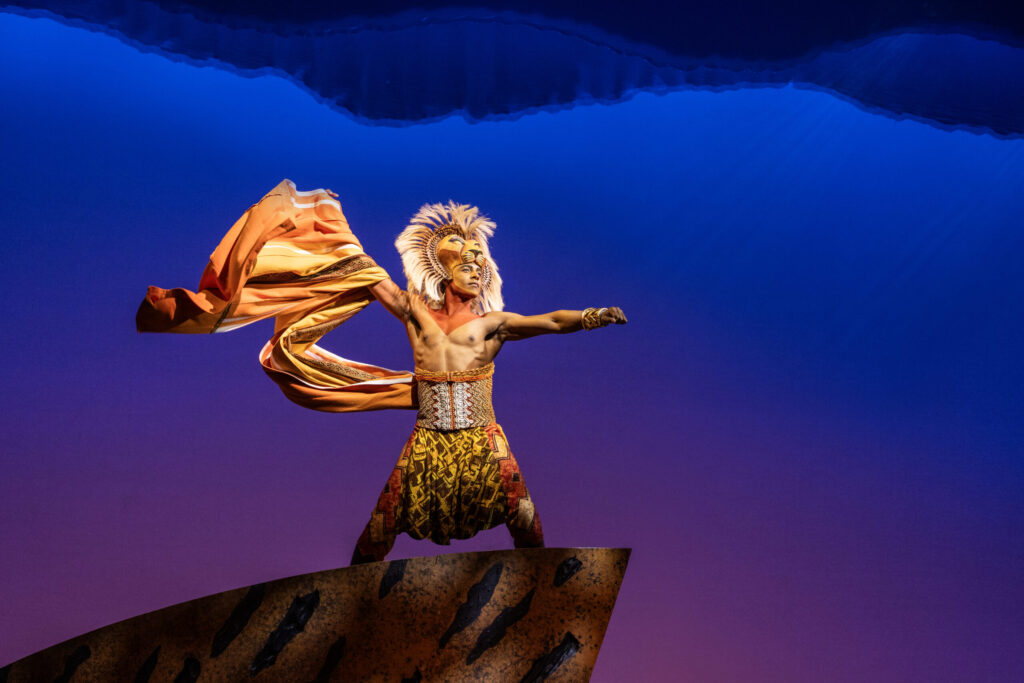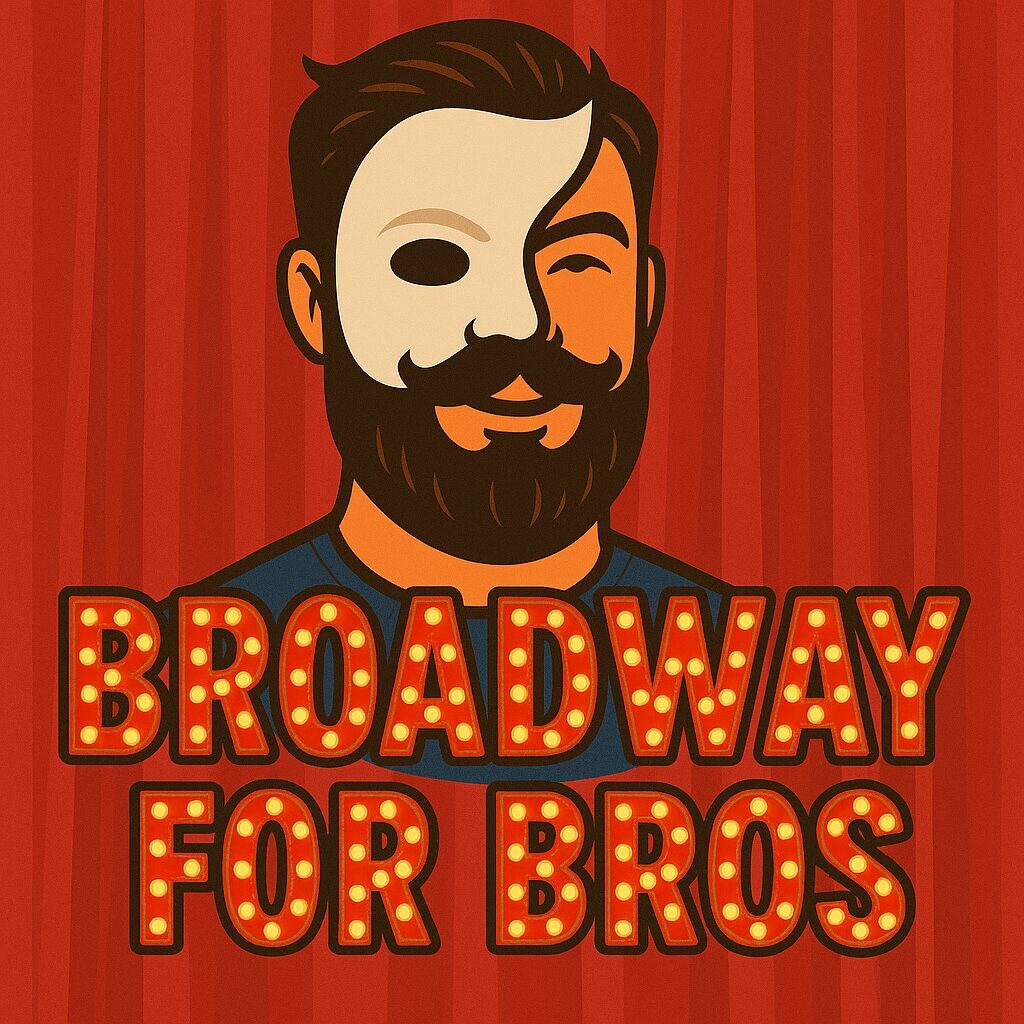Explore Broadway 101: A Beginner’s Guide for Theater-Curious Dudes
Welcome to Broadway for Bros. If you’ve ever asked, “Wait, what exactly is Broadway?” or assumed musicals were just jazz hands and high notes—you’re in the right place. This is your no-judgment crash course in understanding the basics before the curtain rises. Whether you’re here to impress a date, broaden your horizons, or just find out what all the hype is about, this guide’s got you covered.
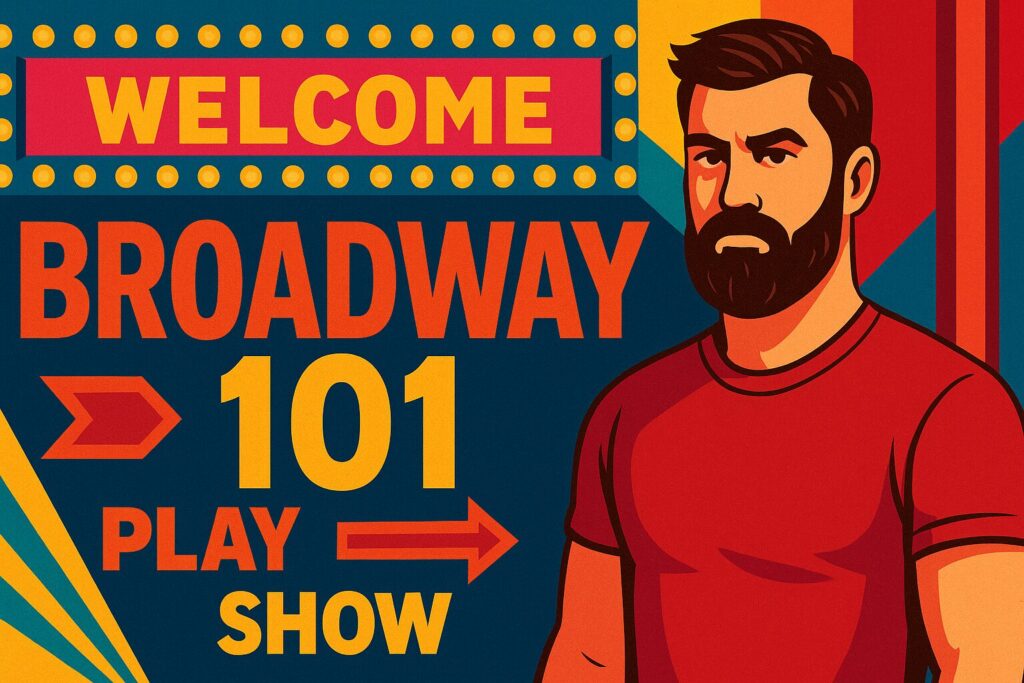
What Is Broadway Theater?
Broadway is theater that happens live, on stage, in front of an audience—but not just any theater. To be considered “Broadway,” a show must be performed in one of New York City’s 41 official Broadway theaters, each seating at least 500 people. These shows represent the highest tier of American theater production: think big budgets, elite talent, elaborate sets, and a shot at winning Tony Awards.
So What’s the Difference Between a Show, a Play, and a Musical?
Broadway Show
This is the umbrella term. Whether it’s a musical or a play, if it’s on Broadway, it’s a Broadway show.
Broadway Musical
A show where the story is told partly through music, singing, and choreography. Think Hamilton, Wicked, or The Lion King.
Broadway Play
A non-musical show that relies solely on spoken dialogue to tell its story. Think The Crucible, August: Osage County, or A Doll’s House.
Pro tip: If someone says, “I’m seeing a Broadway show,” follow up with, “Musical or play?” if you want to sound like you know what you’re talking about.
A Very Brief History of Broadway (So You Sound Smart)
Broadway dates back to the 18th century, but it really took off in the early 1900s with musical revues and theatrical innovation. As New York became a cultural hub, Broadway became synonymous with world-class live performance. Today, Broadway is a $1.5 billion industry that draws audiences from around the globe.
Think of it as the NFL of theater. Not every performance is a touchdown, but the production value and stakes are sky-high.
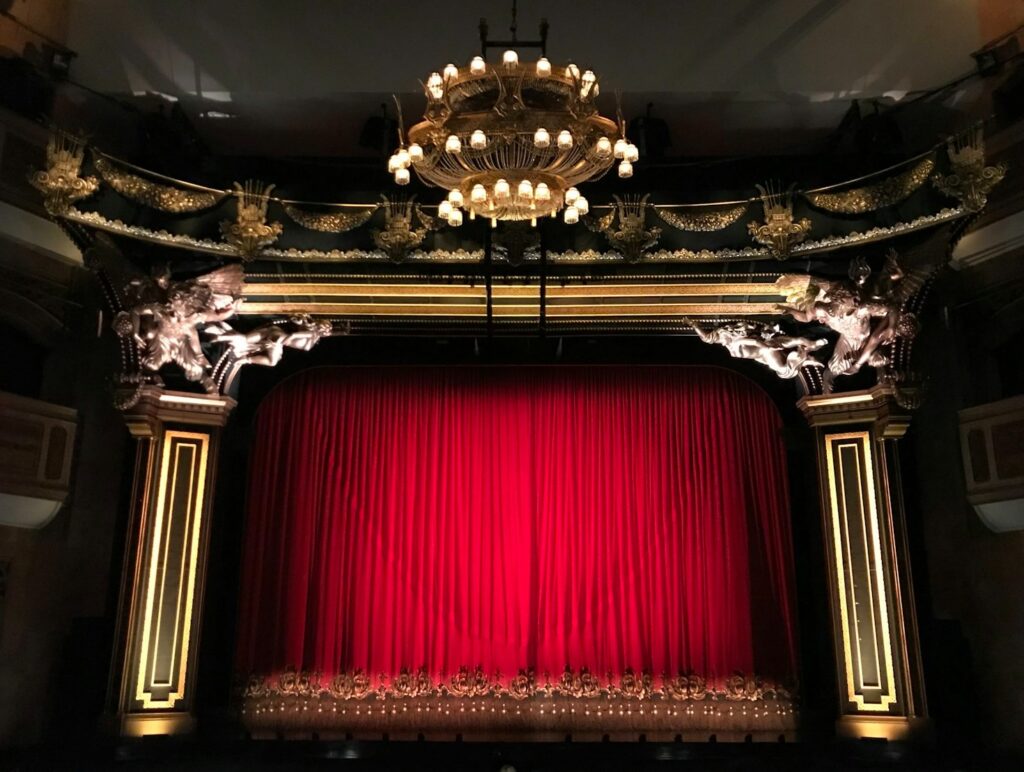
Why Dudes Avoid Broadway (And Why That’s Dumb)
Let’s be real: Broadway has a branding problem with certain guys. It gets stereotyped as glittery, emotional, and overly dramatic. But scratch beneath the surface and you’ll find intense drama, cutting satire, twisted villains, and action-packed storylines that rival anything on HBO or in the MCU.
Plus, live theater is dangerous. There are no redos. No CGI. Just people performing in real time. The stakes are high, and the adrenaline is real.
Know Before You Go: Terms That Make You Sound Legit
Orchestra
The main floor seating—usually the best seats in the house.
Mezzanine / Balcony
Elevated seating above the orchestra. Mezzanine offers a great bird’s-eye view; balcony is higher and cheaper.
Rush Tickets / Lotteries
Discount ticket options for the budget-conscious. Some shows offer day-of deals for early risers or digital raffles.
Intermission
A break in the middle of the show, usually 10-15 minutes. Great time to pee or grab a $22 glass of wine.
Curtain Call
The cast comes out at the end to take a bow. Yes, you can clap (even if you didn’t understand everything).
What to Expect at a Broadway Show (Especially If You’re New)
- Running Time: Most shows are about 2.5 hours with one intermission.
- Dress Code: There isn’t one. Wear what you’d wear to a nice bar—jeans and a button-up is totally fine, but to be really on point, check out our “What to Wear” tips.
- Drinks: You can often bring your wine or beer to your seat in a sippy cup.
- Audience Behavior: Turn off your phone. Don’t talk. Don’t unwrap candy for 15 minutes. Basically, don’t be a jerk. For full details, read our 10 Broadway Etiquette Mistakes.
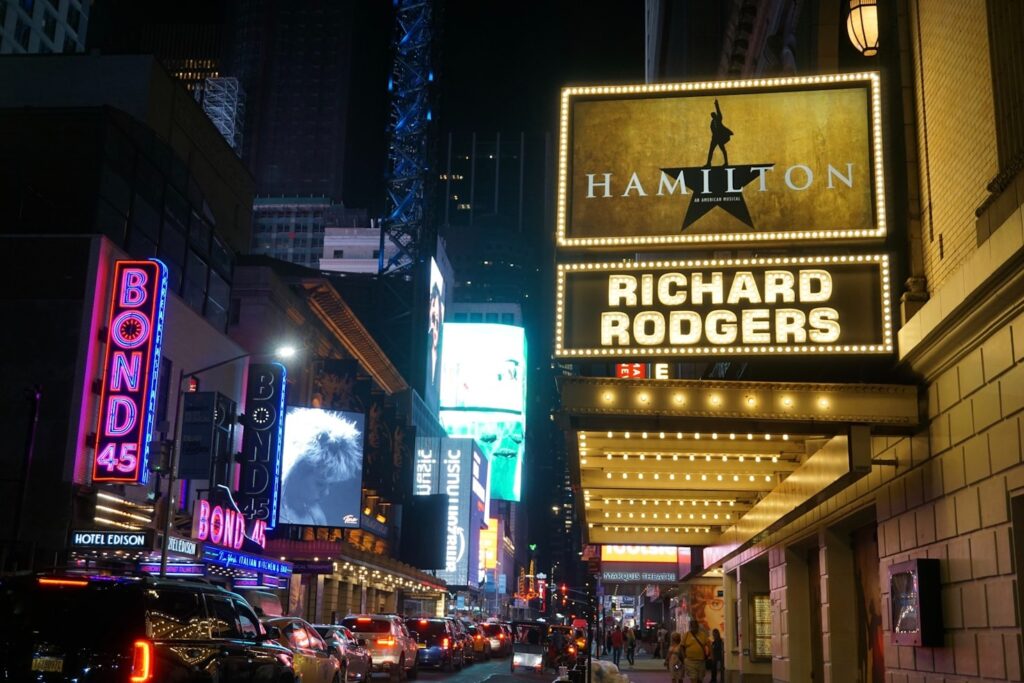
Good Starter Shows for Broadway First-Timers
These are high-energy, plot-driven, and relatively easy to follow:
- Hamilton — History with hip-hop swagger.
- Hadestown — Greek myth meets New Orleans jazz.
- Moulin Rouge! — A jukebox musical with massive spectacle.
- Book of Mormon — Raunchy, hilarious, and surprisingly heartwarming.
- Harry Potter and the Cursed Child — For the fantasy nerd who says he hates musicals.
- Chicago — Crime, corruption, and killer choreography.
- Local Shows — Check out your regional community and local theater offerings, which can be more daring and explorative that highly produced Broadway shows. And, you might bump into someone you know!
The Tony Awards: Broadway’s Version of the Super Bowl
Each June, the Tony Awards celebrate the best of Broadway, the theater’s annual Super Bowl. Winning a Tony is the equivalent of an Oscar or an MVP trophy. If you want to get into Broadway as a spectator sport, this is your jumping-on point.
Want to impress someone? Know the difference between a Tony-winning actor and an “off-Broadway” darling. (More on off-Broadway in another post.)
Frequently Asked Questions (Real Ones We’ve Gotten)
Q: Do I have to like singing to enjoy a musical?
A: Nope. Some shows are more like action movies or stand-up specials with songs. If you like Bo Burnham, South Park, or Les Misérables, you already like musicals.
Q: Is Broadway super expensive?
A: It can be, but it doesn’t have to be. Lottery and rush tickets can get you in for $40 or less. Matinees and weekday shows are cheaper too.
Q: Will I be bored?
A: Depends on the show—but if you pick the right one (see above), odds are you’ll be surprised how fast it flies by.
Final Words: Why Broadway Is Worth It
Broadway isn’t just for theater majors and musical superfans. It’s for anyone who loves storytelling, big emotions, and being part of something alive and electric that teaches us about life and the we live in. It’s funny, moving, weird, loud, raw, risky, and sometimes life-changing.
So go ahead. Broaden your cultural horizons. Step into the theater. And maybe, just maybe, you’ll walk out a little more into it than you expected.
Welcome to the show.
